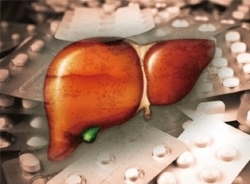Boehringer Ingelheim, Gilead discontinue developing NASH therapies
Samil Pharm begins local P3 trials for Aramchol, raising expectations of domestic firms’ pipelines

Experts are speculating whether Korean firms will successfully develop non-alcoholic steatohepatitis (NASH) drugs, considering multinational pharmaceuticals are discontinuing development.
Boehringer Ingelheim and Gilead Sciences have run into roadblocks developing NASH drugs. At the same time, Korean drugmakers – including Samil Pharm, Shin Poong Pharm, CJ Healthcare, LG Chem, Hanmi Pharm, Dong-A ST, Yuhan Corporation, and Huons – are continuing to develop NASH therapies.
Gilead announced in December that it failed to prove the efficacy of three candidate NASH substances in the ATLAS study.
The ATLAS study was a phase 2 clinical trial comparing the efficacy and safety of ASK1 inhibitor selonsertib, FXR agonist cilofexor, and AOC inhibitor firsocostat, administered alone or in combination, in participants with bridging fibrosis or compensated cirrhosis due to NASH.
Topline results from ATLAS failed to show significant improvement of single or combination therapies compared to placebo in meeting the primary endpoint, defined as achieving at least 1-stage improvement in fibrosis without worsening of NASH.
However, Gilead noted that some of the combination therapies that met the secondary endpoint could be significant and said that it would discuss the next steps with regulators.
Boehringer Ingelheim also announced the discontinuance of a candidate NASH therapy and AOC3 inhibitor “BI 1467335,” which it had acquired from Pharmaxis.
Although BI 1467335 first achieved positive results in a 12-week, phase 2a study of NASH patients, a recent phase 1 study uncovered the risk of drug interactions for NASH patients, prompting Boehringer Ingelheim to halt development.
Against this backdrop, Samil Pharm began phase 3/4 clinical trials of Aramchol after the firm had secured domestic development and exclusive marketing rights to the drug from Israel's Galmed Pharmaceuticals.
The clinical trial will be conducted in institutions in 14 countries, including Seoul National University Hospital, as an international, multi-center, double-blind, placebo-controlled study to evaluate the efficacy and safety of Aramchol for NASH patients.
Aramchol is a daily oral formulation and first-in-class drug. The drug acts to block the accumulation of fat in the liver that causes NASH through partial inhibition of SCD1 in the liver.
Expectations are now rising for the drug as it confirmed positive findings from its phase 2b trial.
Samil announced in June that Aramchol demonstrated a statistically significant effect without worsening liver fibrosis in its phase 2b trial.
Investigators administered Aramchol 600mg to patients for 52 weeks. Primary Magnetic Resonance Spectroscopy (MRS) results showed a significant change in triglyceride ratio.
Subsequent biopsy examinations also showed that the therapy improved at least one stage of fibrosis or resolution without worsening of NASH.

